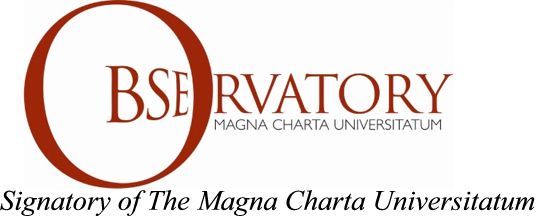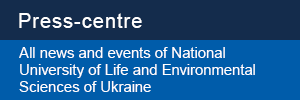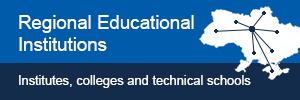NUBiP of Ukraine joined the development of the European project KAIRA EIT Food for the development of regenerative agriculture
NUBiP of Ukraine joined the development of the European project KAIRA EIT Food for the development of regenerative agriculture
June 18, 2025
During June 11-14, 2025, at the invitation of the School of agriculture, policy and development of the Reading University Great Britain), a delegation of the NUBiP of Ukraine consisting of the vice-rector for scientific and pedagogical work and international activities, doctor of economics Olexandr LABENKO; head of the department of crop production, professor Svitlana KALENSKA; deputy dean for international activities of the agrobiological faculty, associate professor of the department of analytical and bio-organic chemistry and water quality Olha KRAVCHENKO and associate professor of the department of economic theory Yuriy VLASENKO took part in the international seminar, dedicated to the development of the KAIRA EIT Food (EU) project on the topic «Knowledge and innovation for advisory services in renewable agriculture».
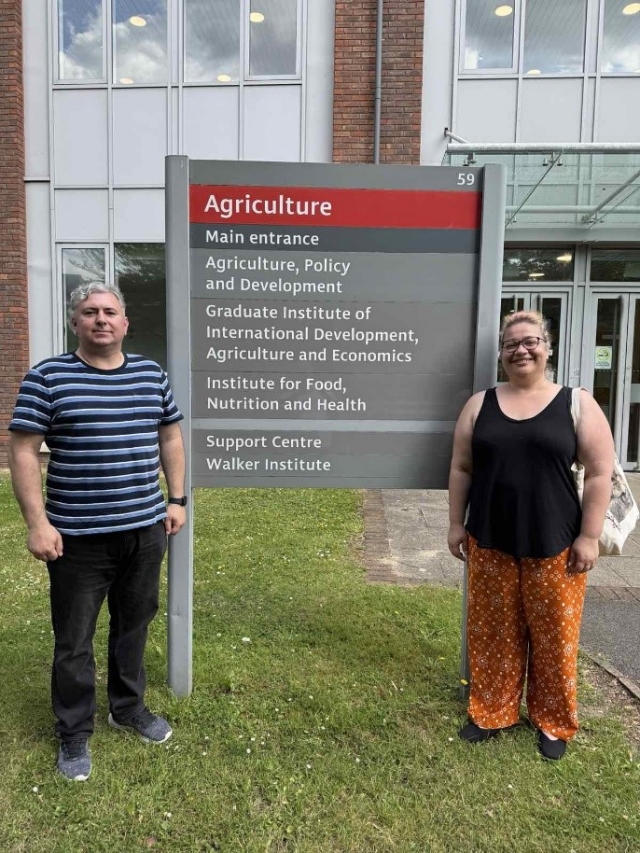
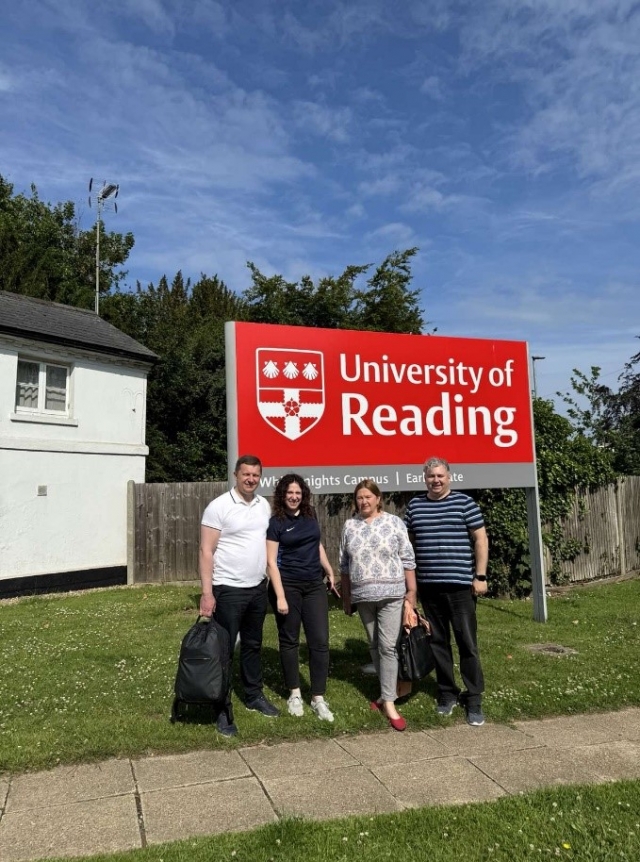
The KAIRA EIT Food Project is implemented in partnership with the Poznan University of life sciences (Poland), the Slovak Agricultural University in Nitra (Slovakia) and the University of Reading (Great Britain). The initiative is aimed at forming and spreading knowledge on the implementation of regenerative (restorative) agriculture practices among small and medium-sized farms in Poland, Slovakia and Ukraine.
Despite the limited duration of the session, the team of the University of Reading composed of doctors Sarah CARDI, Olena KARP and Erica BOWER have prepared an extremely informative and rich program. It included working out the theoretical foundations of the project implementation, getting acquainted with the cultural features of the UK, as well as field visits to farms that already practice regenerative (restorative) agriculture. This integrated approach provided both scientific, methodological and Applied Value of the event for all participants.
At the beginning of the seminar, the project manager, doctor Sarah CARDI, conducted an introductory tour of the territory of the University of Reading for the seminar participants. Special attention was paid to the university campus, which operates on the principles of energy self-sufficiency. Participants had the opportunity to get acquainted with the infrastructure of the institution, which demonstrates an effective combination of modern technologies, environmental awareness and sustainable resource management practices.
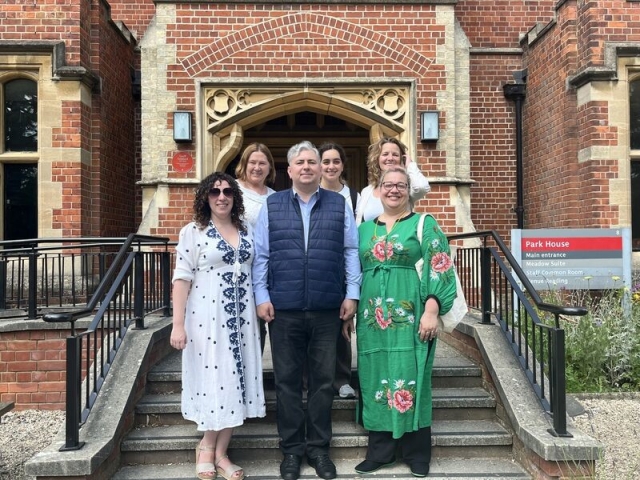
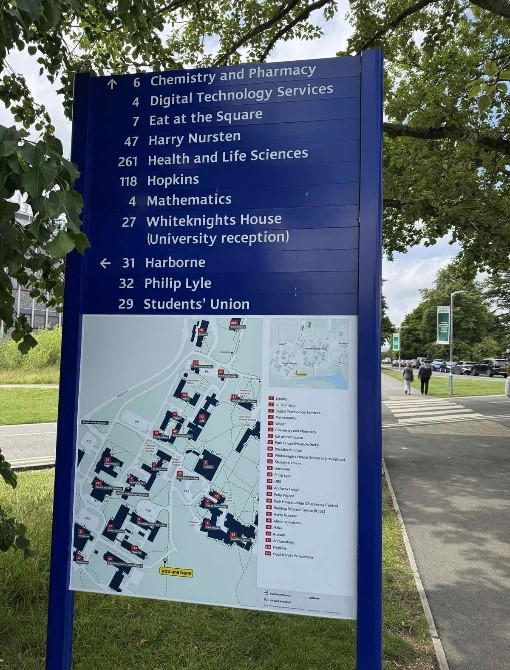
The program of the working meeting included working out the theoretical foundations of the project, in particular identifying the main stakeholders and building a map of stakeholders.
Regenerative agriculture is primarily an approach focused on restoring and strengthening natural processes in agroecosystems. Its goal is not only to maintain, but also to improve soil health, preserve and enrich biodiversity, and increase the adaptive resilience of agricultural systems to climate change. The main principles of this approach are:
- minimal tillage;
- use of cover crops;
- crop rotation;
- reducing the use of chemical fertilizers and plant protection products;
- integration of animal husbandry;
- conservation and restoration of natural landscapes.
The advantages of regenerative agriculture include:
- improving soil structure and fertility;
- increasing biodiversity levels;
- improving the climate sustainability of agricultural systems;
- reducing greenhouse gas emissions;
- improving the quality of agri-food products;
- growth of economic efficiency of farms.
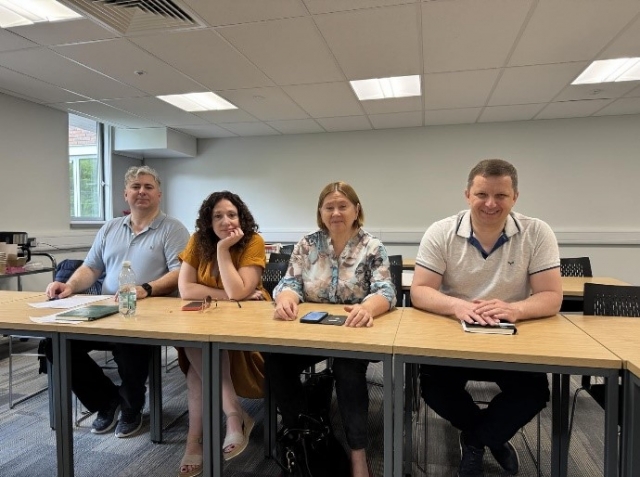
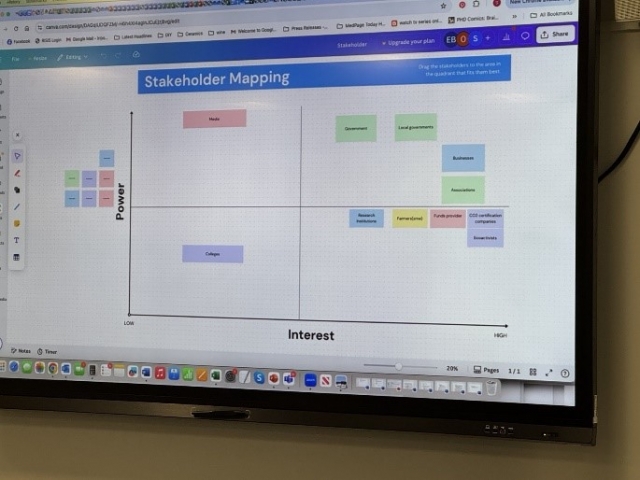
In addition to the theoretical component, the event included practical visits to UK farms that already apply regenerative practices, which allowed the seminar participants to see the results of implementing this approach in real conditions, as well as discuss the prospects for its adaptation to the context of small and medium-sized farms in Poland, Slovakia and Ukraine.
In particular, the participants visited the farm of Cotswold Seeds company — a family-owned company based in Morton-in-Marsh that works with more than 15,000 farmers across the UK, supplying everything from green manure, cover crops and grass lei to long-term dual-use Lei and silage Lei. Group director Paul TOTTERDELL gave a meaningful tour and said that the company was founded fifty years ago by Robin GILL, has gained a reputation as a specialist in the production of custom seed mixes and practical expert advice. Mixtures specifically designed for the needs of each field are designed to improve soil fertility, reduce the need for expensive materials, and improve animal health.
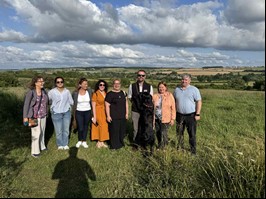
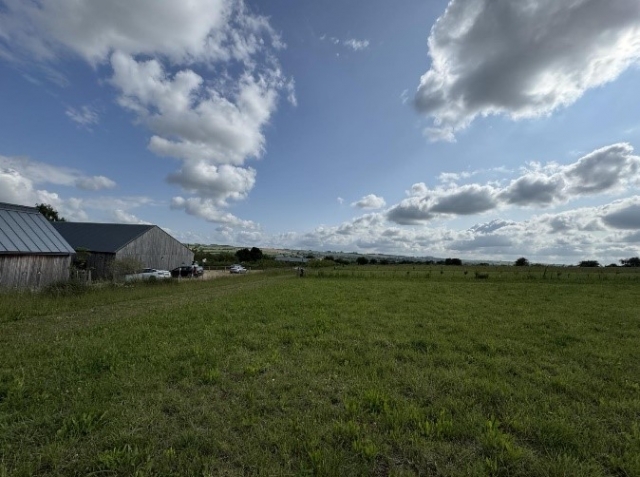
The project team also visited «Clarkson's Farm», located in Cotswold Hills, where the world-famous reality show of the same name is being filmed and which also introduces regenerative farming practices, in particular field-protected forest belts.
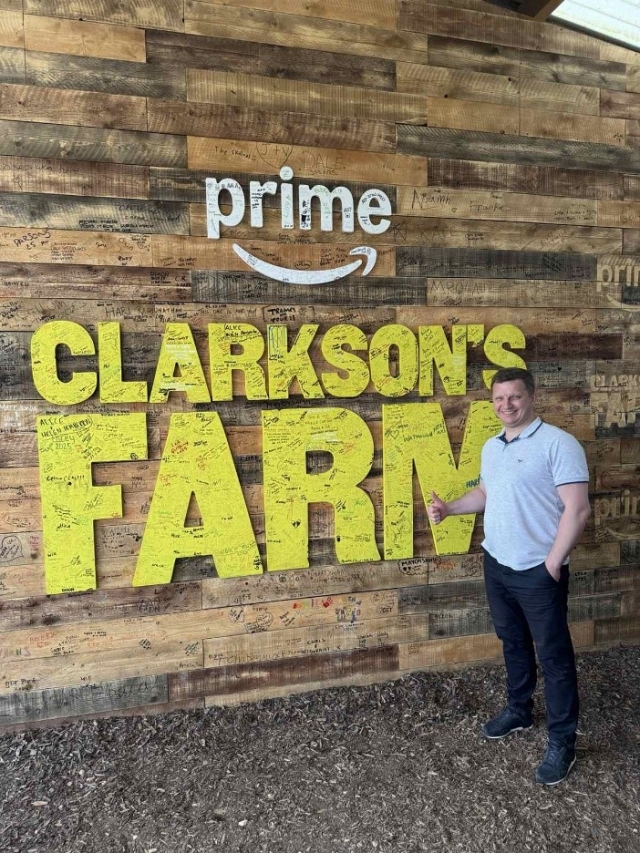
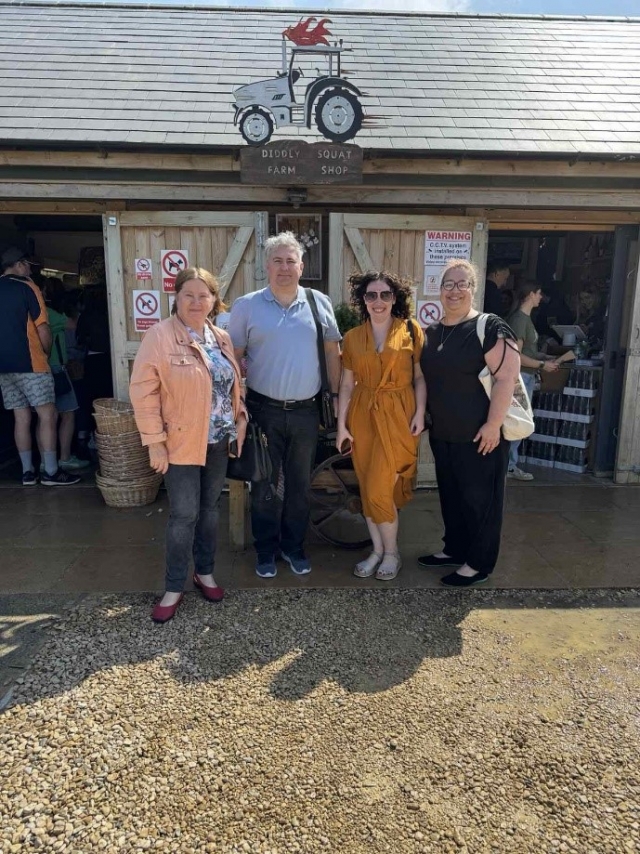
The project participants noted the peculiarities of farming in the project participating countries, as well as practices that can be adapted in each of them. On the last working day of the project team, a thematic session was held on the impact and relationship of KAIRA with other projects.
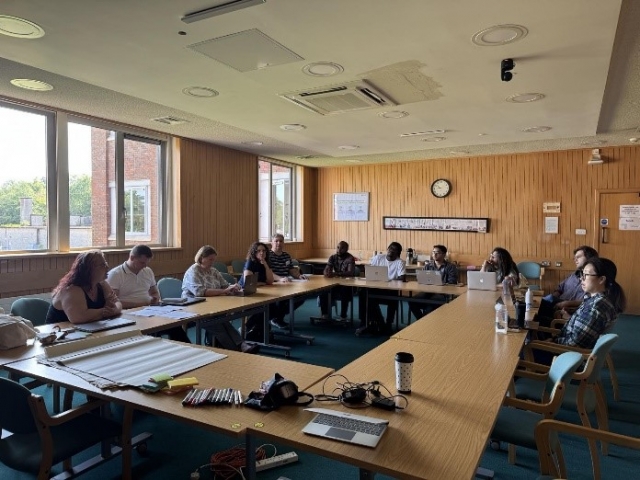
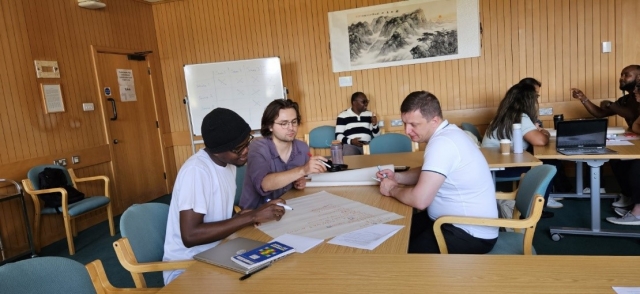
During the session, the following issues were discussed:
- how to reach a wider audience of farms that comply with the principles of regenerative agriculture;
- how to measure the impact of project team activities on the spread of regenerative practices;
- how can we influence agricultural policy and what goals should we strive for?
In conclusion, we would like to express our sincere gratitude to the University of Reading, represented by Project Manager Dr. Sarah CARDI and Simon MORTIMER, professor, director of the School of agriculture, policy and development, for the warm welcome and significant contribution to the development of international partnership.
Yuriy VLASENKO,
associate professor of
the department of economic theory
Olha KRAVCHENKO,
deputy dean for international affairs of
the agrobiological faculty,
associate professor of
the department of analytical and
organic chemistry and water quality



